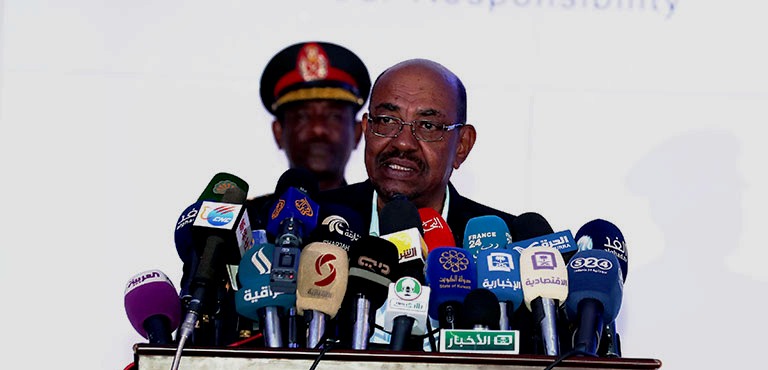Sudan’s Bashir urges “rational political practice” from government and opposition

April 28, 2017 (KHARTOUM) – The Sudanese President Omer al-Bashir Friday has called on the government and opposition parties to commit to a rational political practice after the formation of the new government during this week.
Al-Bashir, who addressed the opening session of the fourth convention of the ruling National Congress Party (NCP) in Khartoum, underscored its commitment to “move forward to achieve comprehensive and lasting peace through dialogue.”
He expressed hope that the holdout opposition would join the national consensus, praising efforts of the political forces and civil society organisations that participated in the national dialogue and produced the National Document.
The Sudanese president said “we look forward to seeing a rational political practice during the second phase of the dialogue”, saying the government and the opposition must act responsibly to create an effective democracy.
He pointed they are committed to drafting the permanent constitution and creating the broadest political and community participation, disclosing his party is preparing studies to draft the permanent constitution and promote political plurality and peaceful transformation of power.
Al-Bashir renewed commitment to go ahead with the implementing the state reform programme to achieve the comprehensive renaissance, saying this could only be reached by strengthening the civil institutions and on top of them the political parties.
He stressed the government of national concord will be announced next week amid hopes to achieve security and stability, saying Sudan’s relations with Europe and the United States has improved through serving mutual interests.
Al-Bashir further called on the Sudanese to support the upcoming government for the best implementation of the dialogue outcome, saying the new government will achieve aspirations of the Sudanese.
Since January 2014, Sudan’s President Omer al-Bashir has been leading a national dialogue process whose stated aims are to resolve the armed conflicts, achieve political freedoms, alleviate poverty and the economic crisis, and address the national identity crisis.
Last October, the political forces participating in the national dialogue concluded the process by signing the National Document which includes the general features of a future constitution to be finalised by transitional institutions.
The opposition groups boycotted the process because the government didn’t agree to a humanitarian truce with the armed groups and due to its refusal to implement a number of confidence building measures aiming to create a conducive environment in the country before to hold the inclusive dialogue.
(ST)
